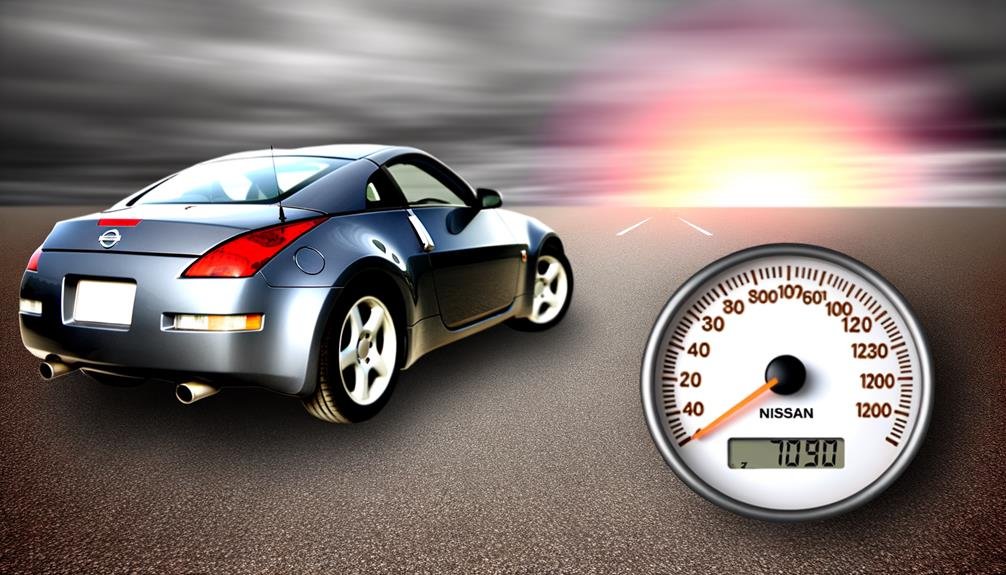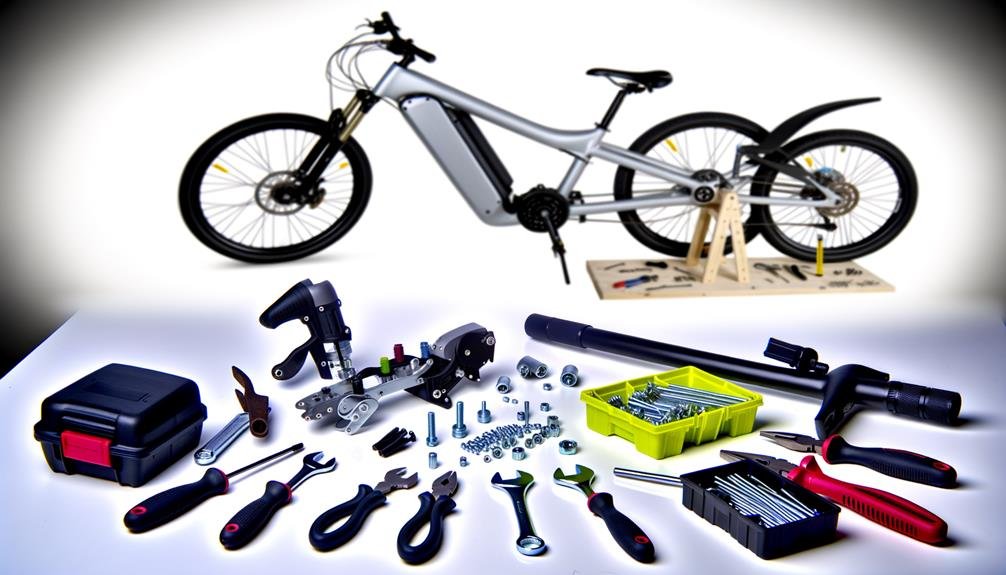Charles Miller is a veteran bike enthusiast with over 12 years of experience dealing with bikes as a mechanic. Despite immense love and expertise for...
While we all might secretly wish to be forever young, the reality of navigating the world of electric bikes is not quite so Peter Pan-esque. We're all aware of the growing popularity of these energy-efficient, eco-friendly vehicles. But, one question seems to hover like an unsolved mystery – what's the age at which you can legally take the reins of an electric bike?
State laws vary, and it's not always as straightforward as we'd like. Stay with us as we unravel this conundrum, and perhaps you'll find the answers you need to confidently embark on your e-bike journey.
- Key Takeaways
- Understanding Electric Bike Age Restrictions
- Electric Bikes: Legal Age by State
- Age Restrictions in International E-Bike Laws
- Choosing the Right E-Bike for Your Age
- Safety Precautions for Young E-Bike Riders
- Benefits of E-Bikes for Older Riders
- Legal Consequences of Underage E-Bike Riding
- Frequently Asked Questions
- Conclusion
Key Takeaways
- Age restrictions for operating electric bikes vary significantly from state to state and country to country.
- In Florida, riders must be at least 16 years old, while in Alabama and Alaska, riders must be at least 14 years old.
- Some states, like New York and Texas, do not have specific age requirements but have power restrictions for electric bikes.
- It is important to comply with the laws and regulations of your local jurisdiction when choosing and operating an electric bike.
Understanding Electric Bike Age Restrictions
Diving into the specifics, it's important to note that age restrictions for operating electric bikes differ significantly from state to state, making it crucial for potential riders to familiarize themselves with their local laws and regulations. In the ebike world, these age restrictions to riding aren't just numbers but a key determinant of who can legally ride an electric bike.
In Florida, for instance, you need to be older than 16 years to ride an electric bike, ensuring that riders possess a certain level of maturity and understanding of the rules of the road. Similarly, in Alabama and Alaska, electric bicycles can't be operated by those younger than 14 years old. This again highlights the importance of being of a certain age to handle these bikes responsibly.
However, the age restriction increases in California where riders of Class 3 electric bikes need to be older than 16 years. This implies that these bikes might be more powerful and therefore require a more experienced rider.
Understanding and adhering to these age restrictions not only ensures our safety but also affirms our sense of belonging in the ebike community.
Electric Bikes: Legal Age by State
Navigating through the web of electric bike laws across the 50 states, we find a wide spectrum of age requirements, each tailored to the unique demands and safety considerations of the individual states. For instance, in Florida, riders must be at least 16 years old to ride an electric bike under local laws.
Understanding ebike laws can be complex, as they vary significantly from state to state. To simplify, let's consider Class 1 and Class 2 eBikes, which are generally more accepted and have more lenient regulations than Class 3 eBikes.
Here's a brief comparison for better insight:
| State | Electric Bike Age Requirement |
|---|---|
| Florida | At least 16 years old |
| California | At least 16 years old |
| New York | No specific age mentioned |
| Texas | No specific age mentioned |
In these states, electric bikes must meet specific power restrictions. For example, in Florida, electric bikes must have a motor of less than 750 watts. It's crucial to understand these nuances in local laws, to ensure that we're not just enjoying our rides, but also doing so responsibly and legally.
Age Restrictions in International E-Bike Laws

As we shift our focus to international e-bike laws, it's clear that age restrictions can vary greatly from country to country.
Some nations have stringent regulations, while others have more relaxed rules regarding the usage of electric bikes.
In our analysis, we'll consider the diversity of these global e-bike legislations and the reasons behind such variations in age limits.
Global E-Bike Legislation
Across the globe, age restrictions for electric bike riders vary significantly, with places like Florida and California requiring riders to be at least 16 years old. However, there's more to the global e-bike legislation than just age.
In Alabama and Alaska, eBikes are considered as motor-driven cycles, meaning riders must have an operator's license and meet registration requirements. Meanwhile, California's eBike laws stipulate that riders above 16 can operate electric bikes with speeds up to 28 mph.
Additionally, local regulations dictate where eBikes can be ridden. As we examine these diverse rules, it's clear that understanding the legislation surrounding what age you can have an electric bike is crucial for global eBike enthusiasts.
Age Limits Variation
Moving from the broader global legislation, let's now focus on the variation in age limits and restrictions in international e-bike laws. It's crucial to note that the age to legally ride an ebike greatly varies from one location to another.
Here are a few examples:
- In Florida, operators must be at least 16 years of age, while those under 16 need a helmet to ride.
- Alabama and Alaska require the rider to be at least 14 years old, and wearing a helmet is mandatory.
- In contrast, Arizona, Arkansas, and California have no specific age restriction but Class-based helmet requirements.
Laws and regulations are largely dependent on the local authority. Therefore, always check with your local jurisdiction before you operate an eBike.
Choosing the Right E-Bike for Your Age
Naturally, choosing the right e-bike isn't just about power and speed; it's also about ensuring the rider's age aligns with the state's specific regulations. Complying with the Electric Bike Laws is essential to the legal use of electric bicycles. The motor that provides assistance, usually categorized as Pedal Assist or Electric Assist, mustn't exceed certain power limits, and the rider's age must meet the state's requirement.
When choosing the right e-bike for your age, consider the rules for riding in your specific state. For instance, in Florida, e-bikes are classified under three categories based on their motor assistance and speed capabilities. In contrast, California classifies e-bikes as conventional bicycles with specific rules about the riders' age and helmet requirements.
Age plays a significant role in what type of e-bike you can legally ride. Staying updated on current laws and regulations pertaining to the use of electric bicycles is crucial. Remember, these regulations can vary by state and may change over time.
Safety Precautions for Young E-Bike Riders

As we turn our attention to the safety precautions for young e-bike riders, it's crucial to first comprehend the potential risks associated with e-bikes.
The need for essential protective gear can't be overstated, from properly fitted helmets to visibility aids such as reflective clothing.
Understanding E-bike Risks
To ensure the safety of young e-bike riders, it's crucial to understand potential risks and take necessary precautions. These include:
- Parental supervision
- Regular maintenance checks
- Appropriate safety gear
- Education on traffic rules
- Limiting the bike's speed and power settings
E-bike risks vary with age. Understanding e-bike risks helps us make informed decisions about when and how to introduce our kids to electric bikes.
Bike operators must wear helmets and other safety gear. Given the speed of 20 MPH for Class II and the speed of 25 mph for Class III e-bikes, this is non-negotiable.
Laws governing the proper operation of e-bikes help ensure safety. Parents play an essential role in teaching these laws and overseeing their application.
Together, we can make e-biking safe and enjoyable for our young riders.
Essential Protective Gear
Building on our understanding of e-bike risks, let's now focus on the essential protective gear that young riders should adopt as part of their safety precautions. Regardless of the age at which kids start riding an electric bike or where bikes are allowed, safety must be the priority. Recent laws governing bicycles underscore the importance of helmets as the most critical piece of gear. According to local agencies, every e-bike rider, especially those under the age of 16 or those riding at a speed of 20 MPH, must wear a helmet.
Here's a table summarizing the essential protective gear:
| Protective Gear | Purpose | Age-Group |
|---|---|---|
| Helmets | Protect the head | All ages |
| Knee and elbow pads | Shield against scrapes | Young riders |
| Closed-toe footwear | Firm grip on pedals | All ages |
| Reflective clothing | Enhance visibility | All ages |
Benefits of E-Bikes for Older Riders
While e-bikes are gaining popularity among all age groups, they're particularly beneficial for older riders, providing assistance with pedaling and making cycling less strenuous. The motor offers added power, enabling riders to maintain or even increase their speed, which can be particularly advantageous for those whose physical strength may have diminished with age.
Benefits of e-bikes for older riders include:
- Maintaining an active lifestyle: Class 2 eBikes and Class 3 electric bikes provide the flexibility of adjusting the level of assistance, making riding less taxing and allowing for longer distances to be covered with ease.
- Boosting confidence and independence: eBikes are allowed in most places where regular bikes are permitted, enabling older riders to explore new areas and stay socially connected.
- Promoting physical exercise: The power-assist feature encourages older riders to engage in physical activities without overexertion.
Legal Consequences of Underage E-Bike Riding

Shifting from the benefits for older riders, it's crucial to understand that there are legal consequences for underage individuals who operate e-bikes without complying with established age and licensing regulations. The legal consequences of underage e-bike riding are important to grasp.
Typically, to operate a Class 1 or 2 motorized bicycle, one has to be at least 15 years old. However, this might vary based on local regulations, so it's essential to be aware of the laws in your area. In addition, riders are required to wear helmets as part of the laws around helmets for anyone under the age of 18.
Here is a table to illustrate the possible consequences:
| Consequence | Explanation |
|---|---|
| Fines | Underage riders can face fines for not meeting the minimum age requirement. |
| Citations | Those without a valid operator's license may receive citations. |
| Penalties | Not wearing a helmet can result in penalties. |
| Restrictions | Bikes must follow certain rules, and underage riders could face restrictions from accessing certain areas. |
As a community, it's our responsibility to ensure we're educated about these regulations to cultivate a safe and inclusive environment for all riders, regardless of what age you can have an electric bike.
Frequently Asked Questions
Can a 12 Year Old Ride an Ebike?
We believe a 12-year-old can ride an eBike under strict parental supervision, following safety measures like proper helmet usage, understanding brakes, and respecting local laws. However, their ebike speed, weight, and traffic awareness skills are crucial.
Can a 12 Year Old Ride an Electric Bike Uk?
We're often asked if a 12-year-old can ride an electric bike in the UK. Under UK legislation, you must be 14 or older. However, with parental supervision and proper safety gear, exceptions can be made.
Can a 14 Year Old Ride an Electric Motorcycle?
We're discussing whether a 14-year-old can ride an electric motorcycle. This involves safety measures, teenage biking laws, parental consent, speed limitations, E-bike maintenance, training requirements, health benefits, environmental impact, and E-bike accessories.
Can a 14 Year Old Ride an Electric Bike in California?
In California, we can confirm a 14-year-old can ride certain electric bike models, provided they adhere to age restrictions, helmet requirements, speed limits, traffic rules, and potentially parental consent and supervision needs.
Conclusion
In wrapping up, it's fascinating to realize that according to the National Household Travel Survey, 30% of all trips in the US are less than a mile. That's an immense potential for e-bikes to replace cars, reduce traffic, and promote exercise.
Therefore, regardless of the age restrictions, it's clear that everyone should consider the benefits of e-bikes.
Remember, safety first and stay updated with local laws and regulations.

Charles Miller is a veteran bike enthusiast with over 12 years of experience dealing with bikes as a mechanic. Despite immense love and expertise for his Tacoma, he rides his Trek Ebike more. Anytime you meet him, you’ll either hear him talking about Bikes, or writing about all things bikes and cars on this blog.
More Posts


